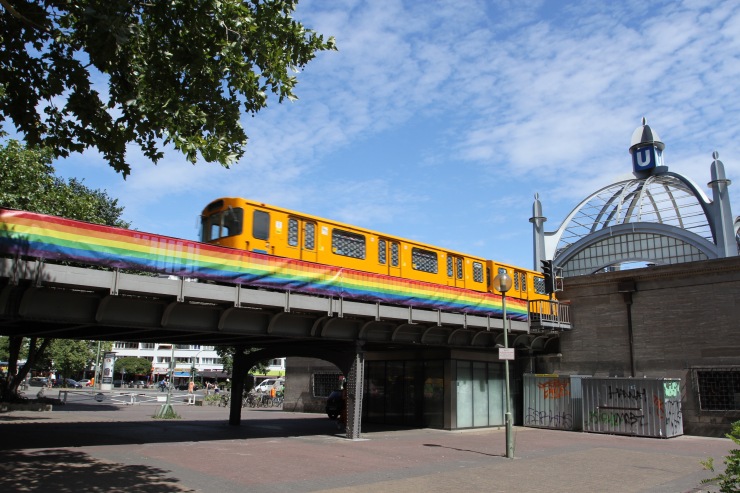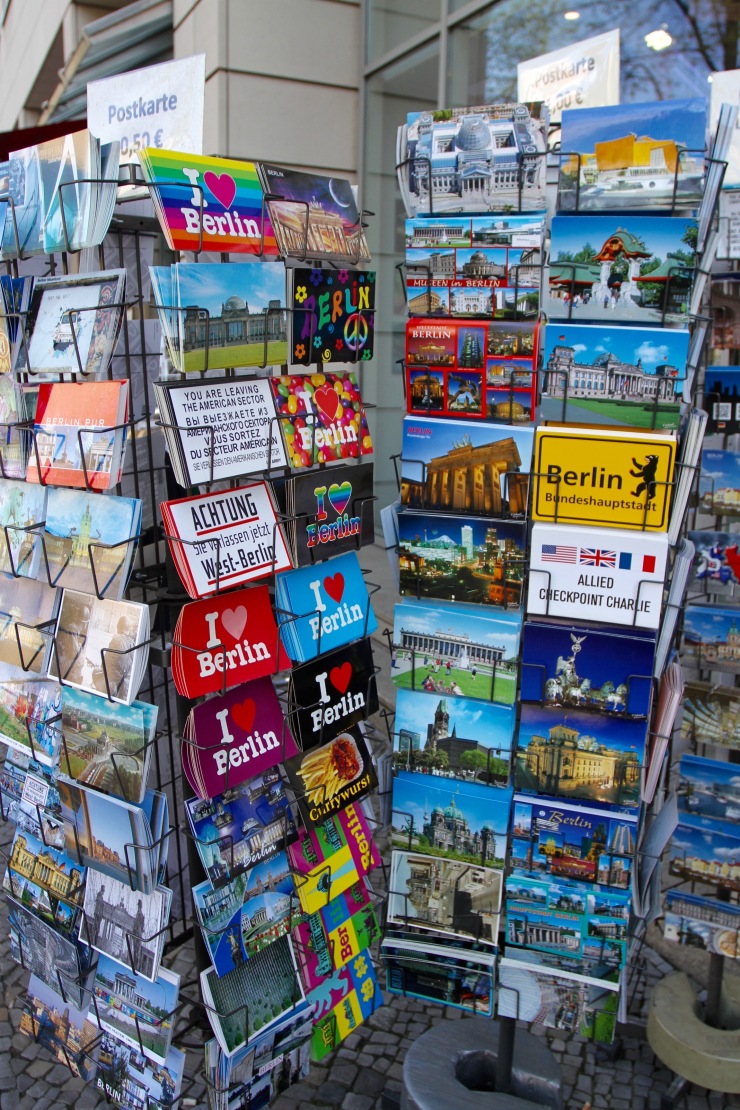It may be a little unfair to use Lady Caroline Lamb’s assessment of her tempestuous lover, Lord Byron, to describe Berlin, but ‘mad, bad and dangerous to know’ seems to fit the city’s character. At least in part*. Just like Byron, there is also culture and beauty in abundance, but let’s face it, any city that identifies as strongly as Berlin does with the currywurst is a risk taker. The iconic sausage smothered in thick curry sauce is a staple of the city’s street food scene. There’s even a museum devoted to it.

This improbable culinary treat was invented in 1949 in post-war West Berlin after a chance encounter between Herta Heuwer, owner of a food kiosk in Charlottenburg, and a British soldier who introduced her to both tomato paste and curry powder. The original recipe is rumoured to have contained Worcestershire source and, presumably after a lot of experimentation, the legend of Berlin’s favourite snack was born. I’m not a food purist, but currywurst is only safely consumed after several drinks.
Currywurst aside, Berlin has a growing reputation as a world-class foodie city, and it’s possible to find cuisines from around the world in its diverse neighbourhoods. It’s just one sign of Berlin’s evolution into a cultural melting pot that transcends its past and makes it one of Europe’s most extraordinary urban areas. The cat has been out of the bag for several years now, and the city once described as “poor but sexy” by its former mayor has been transformed into a vibrant metropolis.





It’s definitely still sexy, but it’s hard to claim it’s still poor despite a cost of living quite some way below that of many European capitals. It may not yet rival San Francisco or London for creative industries, but it’s rapidly becoming Europe’s startup hub. This doesn’t always sit easily with ‘old’ Berlin, and the resistance and protests that have greeted Google’s relocation to the city is indicative of a counter-culture underbelly, which gets full exposure during the annual May Day riots.
It’s not only global tech brands that are changing the demographics and geography of Berlin though. The city is experiencing a period of rapid growth and change, the reviled gentrification is making itself felt in almost all parts of the city. In response to a chronic housing shortage, new buildings are springing up everywhere, and construction cranes seem to form the upper canopy of jungle Berlin. The nature of the city is changing, and maybe not for the best, but it feels dramatic and exciting.





Throw into the mix Berlin’s unique history that encompasses its development as the capital of a newly united Germany in 1871, the freewheeling decadence of the Weimar Republic, the rise of Nazism, destruction during the Second World War, and a divided city during the long decades of communist rule. Reminders of this past are everywhere, but as recent fights between developers and those who want to preserve remnants of the Berlin Wall show, that is no longer certain in the future.
Combine all of this with a bizarre love of bureaucracy and a dysfunctional approach to public services – the next available appointment to register our new address is over six week away – makes this is a complex and perplexing place to live. It’s hard to disagree with Lorenz Maroldt, editor of the local Tagesspiegel newspaper, when he says, “It is hard to escape the impression that Berlin’s government has a certain contempt for its citizens”. Unique amongst European capitals, Berlin is a financial drain on the rest of the country.





As one of my colleagues reminded me, it’s the mix of Berlin’s Byzantine bureaucracy and bizarre rules – Why don’t people cross the road when there are no cars? Why are Germans obsessed with the way you urinate? – that can make new arrivals feel a sense of dislocation. But, she assured me, it wouldn’t take long before I feel “so comfortable that I’ll never want to leave”. Challenge accepted.
* This was written before I discovered the cellar to our building had been broken into, and the ‘secure’ unit where some of our possessions are stored was smashed open. If there’s a silver lining, it’s that the would-be thief didn’t steal anything. Mad, Bad and Dangerous to know indeed!

Look forward to your daily impressions of a city out of this world (to me).
Tschüss Paul.
There is NOTHING wrong with a currywurst, I’ll have you know! 🙂
As for the not crossing the road when there are no cars, that’s not just Berlin. It’s common across Germany (where I believe jaywalking is actually an offence), and it’s certainly the same in Finland, You don’t cross against the lights, even in July when Helsinki is pretty well empty and you can see half a mile in each direction and there isn’t a car in sight!
There’s nothing wrong with currywurst after a couple of litres of hefeweizen!!
The road crossing thing makes me think we humans are a predictable and obedient bunch. Honestly, people could leave home to go to work and have reached retirement before they’ve crossed all the roads.
You really summed up well some of the bizarre things we discovered when we have visited Berlin. We have family living in Berlin, so have heard also of the frustrating levels of bureacracy
Berlin is still an enigma to me, but the frustration is very real. Just been checking out your Berlin adventures, some good advice and ideas, thanks.
Great post 😁